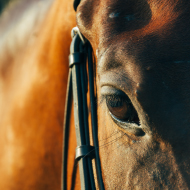
Mutation is not genetic risk factor and only present at very low frequency
Researchers at the UC Davis School of Veterinary Medicine have published the results of a study that investigated the frequency of the warmblood fragile foal syndrome (WFFS) mutation in Thoroughbreds.
The study demonstrated that this mutation is not a genetic risk factor for catastrophic breakdown and is only present at a very low frequency in this breed.
Warmblood fragile foal syndrome is inherited in an autosomal recessive fashion, meaning that a horse needs to have two copies of the mutation to be affected. WFFS is a fatal genetic defect of connective tissue characterised by hyper-extensible, abnormally thin, fragile skin and mucous membranes.
More than 700 Thoroughbreds were tested for the WFFS mutation, including 22 catastrophic breakdown fatalities. The allele frequency among all samples was 1.2 per cent and the carrier rate (or horses with one copy) was 2.4 per cent. None of the horses in the study had two copies of the mutation and only one of the 22 catastrophic breakdown cases carried the WFFS allele.
Since the allele was found to be present in the Thoroughbred population – albeit at a low frequency – genetic testing could eliminate the possibility of breeding two carriers with the potential of producing an affected offspring.
The UC Davis Veterinary Genetics Laboratory offers a WFFS genetic test and recommends testing for all warmblood breeds.



 The RCVS has announced a new version of its 1CPD mobile app, with enhanced features for veterinary surgeons and veterinary nurses to record their continuing professional development.
The RCVS has announced a new version of its 1CPD mobile app, with enhanced features for veterinary surgeons and veterinary nurses to record their continuing professional development.